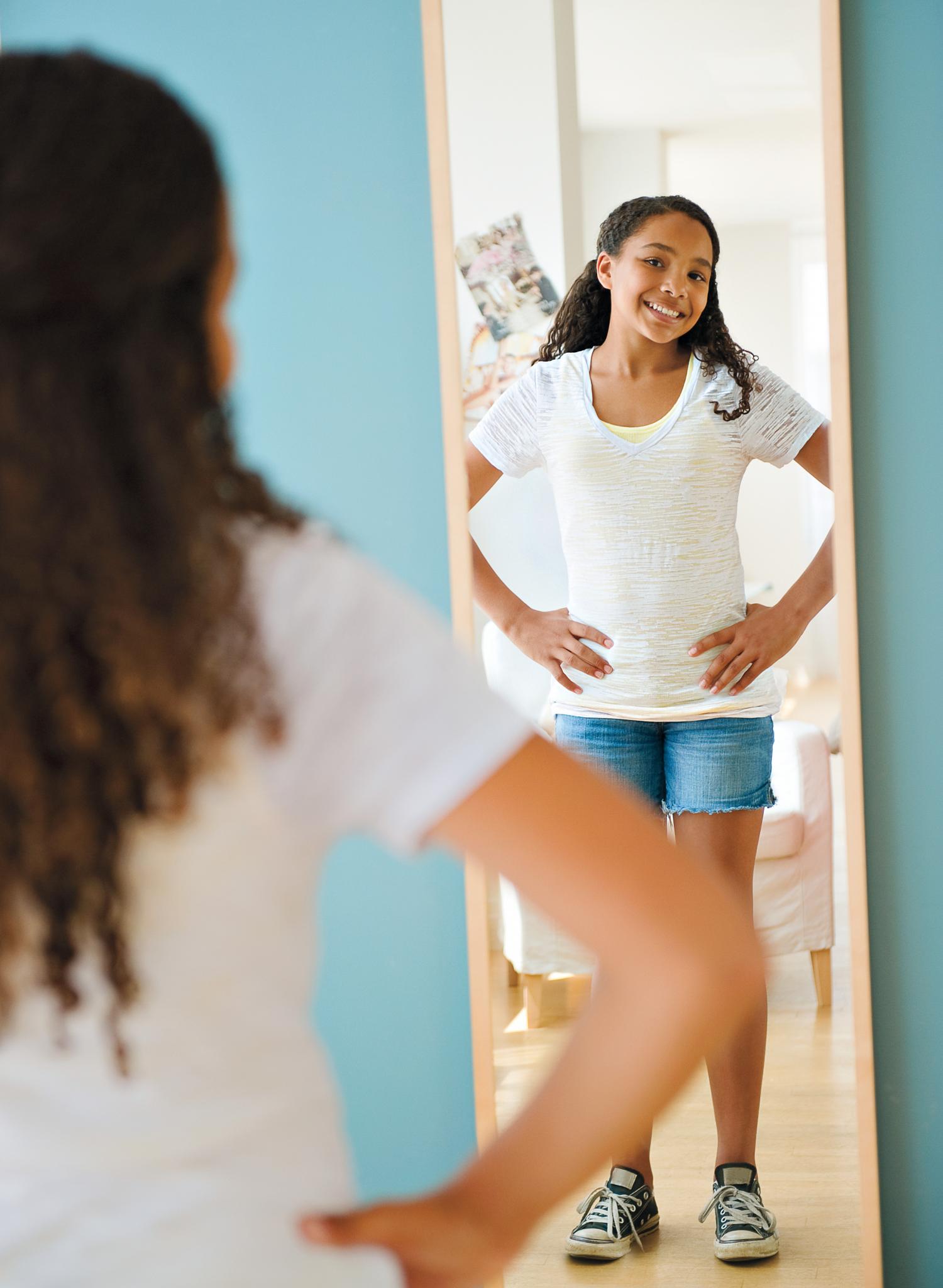
Along with reinforcing the traditional values and beliefs that are meaningful to your family, there is an important ideal that Black parents can ill-afford to overlook: racial pride. The recent #BlackLivesMatter movement sparked a conversation with our kids about identity awareness, for the streets as well as the classroom.
Cultural knowledge also leads to better grades. “My research shows African-American adolescents with an informed racial identity have more academic success,” says James P. Huguley, research associate at the University of Pittsburgh Center on Race and Social Problems. His study found that a cultural foundation gives our kids greater confidence and can protect them from “racial slights.” New York City mom of three Kyissa Jemine, 37, is preparing her eldest, Tabitha, 6, for life as a Black woman. From watching the Black Girls Rock! Awards to going to a Black pediatrician, “we look for her to see our people are strong and accomplished,” says Jemine. Our children need consistent affirming messaging. Here’s how to help your kids build racial confidence.
TEACH SELF-LOVE
Lisa Shaw, 40, a mother of two in Alpharetta, GA, makes sure her daughters appreciate their kinky hair and African-American features. She and her husband, Derick, have a family phrase to empower Nairobi, 9, and Saraan, 7: “Free to be me.” With girls it’s especially critical to walk the walk, says Marilyn B. Benoit, M.D., a child and adolescent psychiatrist in Washington, D.C. She suggests parents highlight faces like Lupita Nyong’o’s and Janelle Monáe’s—”a diversity of beauty images, not just Beyoncé.” For credibility, moms must celebrate their own beauty and resist pressure to focus on European beauty standards.
TALK UP NEWS AND CURRENT EVENTS
Don’t pretend violence against Blacks isn’t happening. The headlines are inescapable. An age-appropriate conversation is key. Research indicates kids can often internalize racial prejudice. Young children, says Benoit, are concrete thinkers, so keep responses simple. For example, “The protesters are upset because a Black man was treated unfairly.” The older ones can process the historical perspective, so share facts about slavery or personal stories of bias. But don’t do all the talking. Let them share their feelings.
ACCENT THE POSITIVE
When kids know what Black people have overcome, they are better prepared—emboldened, even—to deal with adversity. So while any conversation about the Civil Rights Movement has to include the atrocities that resistance leaders faced, put emphasis on the victorious result. “This information should encourage our kids—not victimize them,” says Huguley. There is a resurgent understanding on how racism can traumatize us into adulthood. “Parents should look at these conversations with their children as a form of immunization,” Benoit says. “Our discussions won’t prevent discrimination but can protect them from the damages.” The Shaws share family milestones such as college graduations, career advancements and home purchases.
MAKE IT A LIFESTYLE
Huguley says some Black parents may forget that, despite progress, society is not race-blind. “Family discussions about race and culture shouldn’t be part of a Big Talk,” he says. “It needs to flow naturally all the time.” If your daughter is enjoying her favorite hip-hop track, use the opportunity to talk about how the genre started, then segue into other ways Blacks have shaped American culture. Younger children might enjoy a game like the Myles & Ayesha: Black Inventors Match Game app, which you can play as a family. Encourage your kids with books about African-American history. Tabitha’s favorites include Chocolate Me and Bessie Smith and the Night Riders. “We like to make learning fun,” Jemine says.
MEET THEM WHERE THEY ARE
Older children and teens are developmentally ready to receive frank cultural messaging, says Huguley. “Adolescents should be taught how to behave if they encounter police,” he says. “When it’s the continuation of the cultural lessons they’ve been hearing, this talk has context.” And help them channel their feelings and be empowered to effect change. Youth Speaks offers national opportunities for poetry slamming and performing, and The Freechild Project has tips and options for teen activists.
This article originally appeared in the August 2015 issue of ESSENCE magazine, on newsstands now!